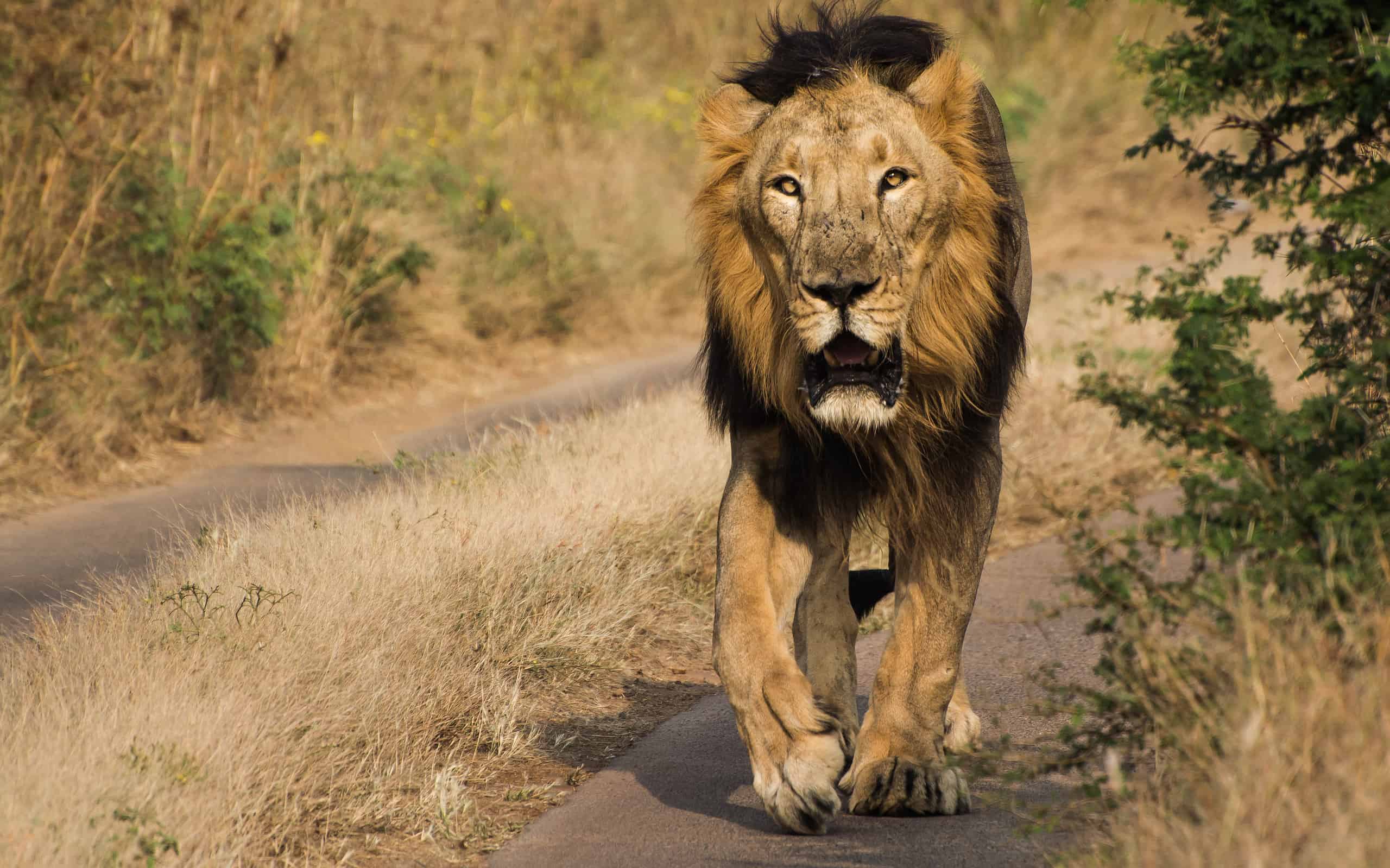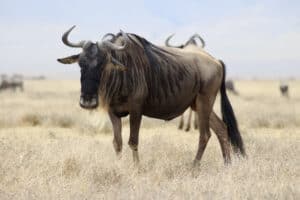Sometimes eating too much gets the best of all of us. You know that feeling – when your stomach is so full, and you just don’t want to move? Well, the lion in this short clip knows it too! According to the caption and narration, the lion spent seven days gorging himself on a giraffe. He became so full he lay down on the road and refused to move. While filming in Krueger National Park, Africa, the cameraperson captures the meat-drunk lion from several angles. We see his very full belly and that he clearly doesn’t intend to move anytime soon. Let’s learn more about lions and what meat drunk means before watching the clip below!
Is Meat Drunk a Real Term?
Yes! You may have heard it called the meat sweats in humans. However, this happens in lions, as well. Essentially, the high amount of protein causes the body to go into rapid metabolism mode. That is, the body is trying to process the food overload as quickly as possible. It produces an incredible amount of insulin. In turn, this increases blood flow, body temperature, and heart rate. Interestingly enough, this process doesn’t just occur with meat. The term “food drunk” originated in 1905 with an article by Thomas Edison. This woozy, drunk-like state happens whenever a large amount of any kind of food is consumed.
Some reports claim sighting a meat-drunk lion or two actually falling over before taking a long nap! Just like being drunk with alcohol, the only cure for meat drunkenness is time.

The only cure for a meat-drunk lion is for him to take a nap (and pass the time).
©Chris Lonsberry/Shutterstock.com
How Much Can a Lion Eat in One Sitting?
Adult lions only need about 10–15 pounds of meat daily, depending on their sex and weight. However, because they often go for days on end without eating, they take advantage of any meal they get. An adult lion consumes as much as 110 pounds of meat in one sitting. That’s plenty to result in a meat drunk lion!
Lions eat a variety of prey. Pretty much, if it’s meat, they’ll eat it. Even if that means stealing kills from other predators such as leopards, cheetahs, and hyenas.
Meat Drunk Lions Aside, Do Other Animals Get Drunk?
While some claim that various animals get drunk on substances they encounter around them, it’s rare to find an animal that truly drinks alcohol. Most stories about drunk animals turn out to be false.
You may have heard of elephants getting drunk on Marula fruit in Africa. The tree drops the fruit, which begins to ferment on the ground. Fermentation is the natural process fruit undergoes once it leaves the tree. A chemical reaction occurs, which produces alcohol. That’s also how wine is made from grapes. Supposedly, elephants consume the fermented fruit and become drunk.
As funny as it sounds, this myth isn’t true. Although the fruit does become alcoholic, and some humans even harvest it to make alcoholic beverages, elephants just don’t eat enough to get drunk from it. In fact, they would have to consume approximately 130 pounds of the fermented fruit to experience an intoxicating effect. Most elephants visiting the trees eat about half that amount. Some suspect the strange behavior seen when elephants eat the Marula fruits is actually from them eating bugs within the fruit that produce a toxic effect. No one knows the answer for sure.
Watch This Meat Drunk Lion Lying in the Road Below!
Thank you for reading! Have some feedback for us? Contact the AZ Animals editorial team.








